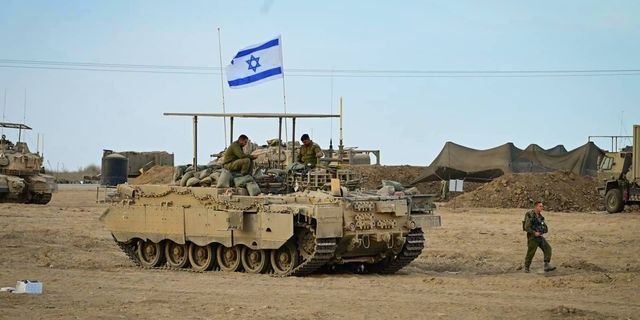Originally published by the Times of Israel (August 11, 2025)
As far back as one can trace, Christians have struggled to reconcile what they call the New Testament with the Old. The obvious solution would have been to discard the latter entirely. This radical step was emphatically suggested by Marcion in the second century, and again highly recommended by Adolf von Harnack—one of the founding fathers of liberal Protestantism—at the beginning of the twentieth century. For reasons never fully clarified, the early Church authorities rejected this idea. Moreover, in recent years, the Catholic Church has proclaimed that God’s covenant with the Jews was never revoked.
Catholic preachers, of course, have various ways to smooth over potential contradictions between the “Old” and “New” Testaments. However, this seems nearly impossible with today’s Mass readings—Tuesday, August 12th—especially given the immediate political circumstances we face here in Israel.
In the passage from Deuteronomy (31:1-8), we hear God voicing His support for the conquest of Canaan under Joshua’s leadership. We learn of His intention to deal with the nations already dwelling in the Land to this effect. Meanwhile, the Gospel passage speaks of God’s high regard for children’s innocence—so much so that He encourages Jesus Christ’s disciples to become like them.
How are Catholic preachers supposed to reconcile the legitimation of military violence in Deuteronomy with the Gospel’s celebration of childlike meekness? If ignoring this dilemma is the option of cowards—whose numbers should never be underestimated—contrasting the peaceful spirit of the New Testament with the violent teachings of the Old is theologically perilous for the reasons mentioned above.
The question therefore becomes: Are we truly confronted with an insurmountable contradiction? Does high regard for the life of the innocent—children above all—make it impossible to legitimate military conquest from a Catholic perspective?
The best approach to this question is probably to examine what these texts actually say.
Undeniably, in the Deuteronomy passage, God offers unashamed support for the conquest of the Land by Joshua’s people, and correlatively, for the subjugation of nations unwilling to coexist peacefully (Deuteronomy 20:10-11). The only way to justify God’s position here, I assume, is to invoke the promise of the Land He gave to Abraham and his divinely blessed descendants. While this promise may be regarded as essential to Jewish existence—whether Jews recognize the present state of Israel as its fulfilment or not—it is obviously not the kind of justification that modern international law, much less contemporary public opinion, would accept. As for the Catholic magisterium—the Church’s official teaching authority— one touches here the limits of its recognition of the Jewish divine election. On this point, all official documents manifest unmistakable discomfort.
That being said, there is one case, and one case only, when wars are justified from a Catholic perspective. I refer to the still-valid paragraph 2266 of the1996 of the Catechism of the Catholic Church: “…governments cannot be denied the right of lawful self-defence, once all peace efforts have failed.” Naturally, numerous conditions must be met for such self-defence to be deemed legitimate. Yet before dismissing the relevance of Deuteronomy in our present context, is it entirely inappropriate to ask whether the war Israel is currently waging in Gaza might be precisely one of those wars that can find such justification? Even the French national anthem—hardly suspected of clericalism—acknowledges that self-defence sometimes provides sufficient reason to call citizens to arms:
“Do you hear, in the countryside, / The roar of those ferocious soldiers? / They come right into our arms / To cut the throats of our sons, our women!”
Or is it that the only nation on earth whose wars should be deprived a priori of any natural or legal justification is the one which, according to Catholic faith, was once entitled by God to this small piece of land?
As for the Gospel passage, the more I study it, the less I believe it can be set against Deuteronomy. This is not to say that the death of innocent children is not terrible, even when military conflict can be justified. Rather, the passage is not about that at all.
What does it mean to “become like children”? What is the singular superiority children have over adults? I believe it is a negative superiority, as it were. Children lack the sophisticated words that adults masterfully deploy to cover up their evil deeds, whether to others or themselves. Children feel moral pain acutely and know that only openly repentant spirits can obtain what they long for: forgiveness. In this, children are our masters. They teach us to forsake grand, beautiful words of self-justification. They invite us to acknowledge transparently—though painfully—before God that we did wrong, while hoping for His hesed.
Wars are sometimes justified. Individual sins never are. I see no contradiction between these two statements. To enter a land with an army is one thing. To enter the kingdom of God with a purified heart is another. There might even be situations when, to please God, the two should go together.

